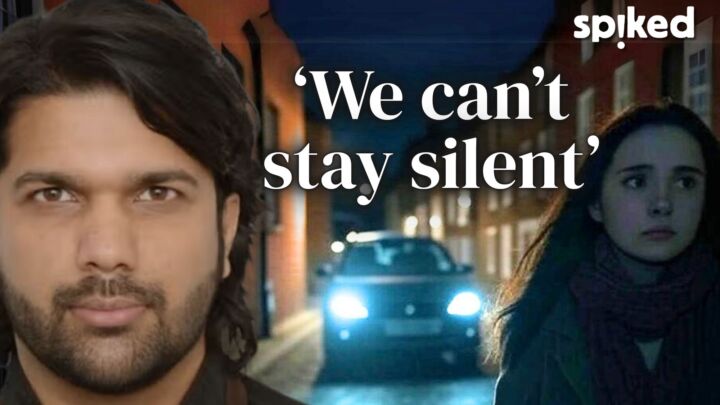How an ‘anti-terrorism’ law cancelled a flower show
The British state is cracking down harder on community events than on Islamist extremism.

Want to read spiked ad-free? Become a spiked supporter.
Every year for two days in August, the picturesque medieval town of Shrewsbury, Shropshire holds a flower show. In fact, the 150-year-old Shrewsbury Flower Show is believed to be the largest and longest-running flower show not just in Britain, but also the world. It attracts over 25,000 visitors, who enjoy arts and crafts, military bands, show jumping, a firework display, demonstrations by celebrity chefs and, of course, meticulously designed flower and plant displays. To most people, this probably sounds like a wholesome family day out. But to the British state, Shrewsbury Flower Show poses a deadly security risk.
The Shropshire Horticultural Society announced last week that the show would not be going ahead this year, in large part due to a bit of clumsy lawmaking. The chairman explained that the show is no longer ‘financially viable’ because of a significant rise in the cost of hosting it – in particular, the costs incurred by the introduction of the Terrorism (Protection of Premises) Act 2025, better known as ‘Martyn’s Law’.
This piece of anti-terror legislation was passed by the Labour government last year, in response to the 2017 Manchester Arena bombing. The law is named after Martyn Hett, one of the 22 victims who were murdered at the Ariana Grande concert, and whose family and friends campaigned for stricter security measures for large events. As a result, as of this month, venues with a capacity of 200 or more must have a plan in place in case of a terror attack. Those with a capacity of over 800 people must take concrete steps to prevent terrorism, such as bag searches, safety barriers and CCTV.
Unfortunately, this well-intentioned law has helped to kill the Shrewsbury Flower Show. To be clear, the show had already been struggling financially since the Covid-19 lockdowns. But Martyn’s Law was the final nail in the coffin. The Shropshire Horticultural Society simply doesn’t have enough manpower or money to implement extensive anti-terror measures. As the society’s chairman explained last year, before the law even came into effect, the show ‘spent over £150,000 on security and barriers’ alone. With the added burden of Martyn’s Law, running the event simply became unsustainable.
Shrewsbury Flower Show won’t be the only victim here. The UK government’s own risk assessment, published last September, found that smaller venues were particularly concerned about being able to meet the onerous demands of Martyn’s Law. The majority of organisations that run places of worship and village halls were unsure if they had the financial headroom to continue operating under such strict conditions. In total, the report estimated that the new measures would cost UK businesses £208million per year over the next decade. Meanwhile, the risk assessment admitted that it is impossible to calculate the ‘precise reduction in terrorism’ the law might eventually lead to.
Martyn’s Law was a kneejerk reaction to a horrible event, campaigned for and introduced by people who genuinely wanted to prevent similar tragedies in future. Obviously, the government did not set out to purposefully shut down flower shows, church fetes, village festivals or community-hall concerts. It came from a place of wanting to ‘do something’.
But surely there are more constructive things the state could be doing. Instead of addressing the – as yet – nonexistent problem of terrorism at flower shows, why not crack down harder on the Islamists we know are still roaming free? Time and again, we hear horror stories of the state failing to step in to stop known extremists before they commit an attack. Or allowing Islamists to enter the country illegally before inflicting terror on these shores.
We don’t even seem to be in control of the ones we do lock up. Earlier this month, Hashem Abedi – who helped his brother, Salman, carry out the Manchester Arena bombing – attacked several prison officers with ‘homemade’ weapons and hot oil. Despite being one of the most high-profile terrorists in captivity, in a supposedly high-security prison, Abedi was somehow able to put three officers in hospital with life-threatening injuries.
Prior to the Manchester Arena attack, the Abedi brothers were also allowed to travel back and forth between the UK and Libya, where they fought with Islamist militias. In 2023, MI5 apologised for failing to act on intelligence that might have prevented the bombing. Questions have also been raised about why their Islamist father was ever allowed to settle in the UK to begin with. But why address these catastrophic failures when you can more closely regulate event entry requirements?
The British state would rather make all of our lives a little less free, and a little less culturally enriched, than come down harder on Islamist extremists. It would rather erect more checkpoints at venues than protect our borders. The chances that Martyn’s Law stops a terror attack are, unfortunately, pretty slim. But it will further corrode the very free society politicians claim to be defending.
Lauren Smith is a staff writer at spiked.









Comments
Want to join the conversation?
Only spiked supporters and patrons, who donate regularly to us, can comment on our articles.